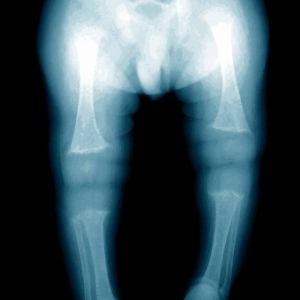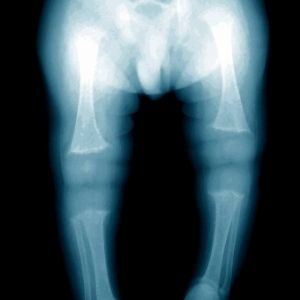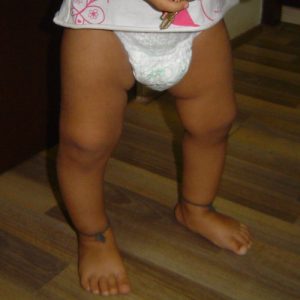Rickets is a condition that leads to the softening and weakening of bones in infants and young children, making them more susceptible to fractures and deformities. It is primarily caused by a deficiency of vitamin D, calcium, or phosphate, which are essential for bone formation and maintenance. This condition is often seen in children who do not receive enough vitamin D, which is crucial for proper calcium absorption. Diarrhea, vomiting, and severe malnutrition can also contribute to the development of rickets.
Rickets is commonly caused by:
Children with rickets may exhibit various signs, including:


The typical treatment for rickets includes:
However, in some cases, conventional treatment may fail if the cause of rickets is due to impaired absorption of these nutrients.
At HomoeoCARE, we understand that rickets can be caused not just by deficiencies, but also by underlying metabolic issues and a weakened immune system. Our approach to treating rickets involves:
We’ve seen remarkable results in children who were suffering from rickets despite taking calcium and vitamin D supplements. For instance:
Homeopathic treatments can effectively manage and cure rickets by addressing both the symptoms and the root causes. We at HomoeoCARE believe in treating the body holistically, ensuring long-term relief and health restoration. If your child is showing signs of rickets, consult with a professional homeopathic doctor for personalized treatment.


